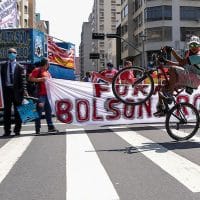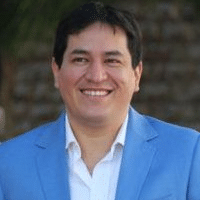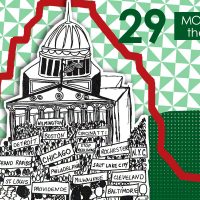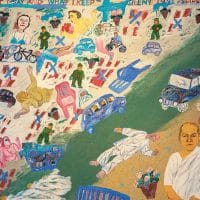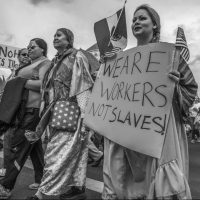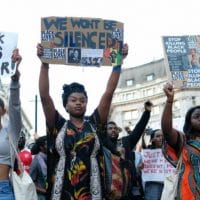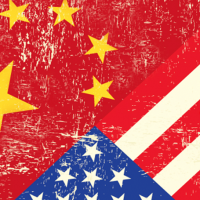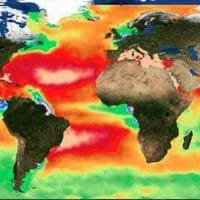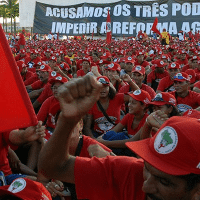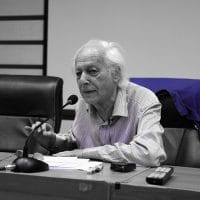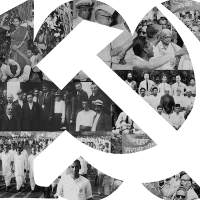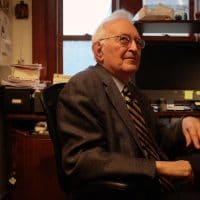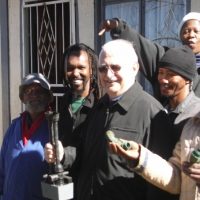-
Youth in Brazil’s peripheries in the era of CoronaShock
Across the world, youth have become important political actors, especially since the 1960s. Along with workers, women, and people of colour, youth have been main protagonists in the fight for national, anti-colonial, anti-imperialist liberation in Asia, Africa, and the Americas.
-
How Ecuador’s Democracy is being suffocated
Those polled said that Arauz was by far the most attractive candidate. But, if the ruling bloc in Ecuador has its way, Arauz will not be sworn in as the next president of the country next year. They will use every means to suffocate democracy in their country.
-
Money After Redlining with Rebecca Marchiel
In this episode, Money on the Left hosts speak with Rebecca Marchiel, Assistant Professor of History at University of Mississippi, about her important new book, After Redlining: The Urban Reinvestment Movement in the Era of Financial Deregulation (University of Chicago Press, 2020). After Redlining tells the story of the anti-racist urban reinvestment movement in early […]
-
Triple Crisis in the Anthropocene Ocean. Part Two: Running low on oxygen
Continuing Ian Angus’s examination of the ‘deadly trio’ of CO2-driven assaults on ocean life. Part two: The ocean is losing its breath.
-
Why Modi’s government is not up to the task
The Modi regime believes that no matter how impoverished the people are their electoral support can always be won by promoting Hindutva and effecting a communal polarization. It is an utterly cynical view, but then, the present dispensation represents the acme of cynicism.
-
Medical workers of conviction: Speaking to Cuban doctors who heal the world
The United States government has continued attacking Cuban medical internationalism right up to the current pandemic, making wild allegations against the program that disparage the medical workers.
-
The Democrats’ immigration agenda
The immigration plank in this year’s Democratic Party platform is a reminder that real immigration reform isn’t going to happen without serious grassroots organizing.
-
The participation of UK corporate media in Black deaths
The focus of corporate media is to preserve the status quo and the careers of those at sites of power. This is in part why racist double standards are a constant feature of corporate media coverage. But why is it so important to limit the revelations that racism is systemic?
-
California’s apocalyptic ‘second nature’
A new, profoundly sinister nature is rapidly emerging from our fire rubble at the expense of landscapes we once considered sacred. Our imaginations can barely encompass the speed or scale of the catastrophe. Gone California, gone.
-
The difference between the U.S. and China’s response to COVID-19 is staggering
In Washington Post reporter Bob Woodward’s new book, Rage, he reports on interviews he did in February and March with U.S. President Donald Trump about the coronavirus.
-
Which way?
Ups and downs in Germany are less dramatic than in Minsk or the USA, now suffering under the corona pandemic, terrifying forest fires and worrisome election-fever. But Germany, too, could veer left or right.
-
Triple crisis in the Anthropocene Ocean
Scientists call them a ‘deadly trio.’ If acidification, oxygen loss, and overheating are not ended soon, a massive die-off of ocean life may be unstoppable.
-
If humanity is to have any future at all
The history of capitalism as a world system is punctuated by struggles for world hegemony between declining hegemonic powers and rising states, usually leading to world wars. We are now in such a period, which had been building for some time under Obama and is now being pursued much more openly and belligerently under Trump.
-
Celebrating the Life of Samir Amin
For Samir Amin’s anniversary on Sept 4, Global University for Sustainability invited Samir’s friends to reminisce their interactions with Samir and celebrate the very rich life that Samir lived.
-
Fighting evictions: The 1930s and now
Out of the 110 million Americans who pay rent for housing, by 2021, some 30 to 40 million will face eviction. Such mass homelessness would be an unprecedented social catastrophe with possible revolutionary consequences.
-
Resisting Predatory Finance with Raúl Carrillo
Organizer for economic justice and scholar of law, race, and money, Raúl Carrillo, joins Money on the Left to explore the promise of the public money framework for advancing antiracist, anti-imperialist, and democratic politics across the world. We discuss how the public money or MMT perspective shapes his work as an attorney fighting against predatory […]
-
The U.S. is determined to make Julian Assange pay for exposing the cruelty of its war on Iraq
On September 7, 2020, Julian Assange will leave his cell in Belmarsh Prison in London and attend a hearing that will determine his fate.
-
Dossier no. 32: One hundred years of the communist movement in India
Through their self-effacing work, the communists have galvanised hundreds of millions of people into action in order to bring about far-reaching changes in society.
-
Essays in memory of Immanuel Wallerstein (1930-2019)
‘Once they are taken to be ideas about a historical world-system, whose development itself involves “underdevelopment,” indeed is based on it, [Marx’s theses] are not only valid, but they are revolutionary as well.’
-
Two faces of time in the modern era—Immanuel Wallerstein and his intervention on the issue of cultures in conflicts
By redefining a range of categories, Wallerstein seeks to reconstruct the scenario of the world, using a kind of political economy of culture to replace various Enlightenment thoughts—the presuppositions of various social sciences and their classification systems.

